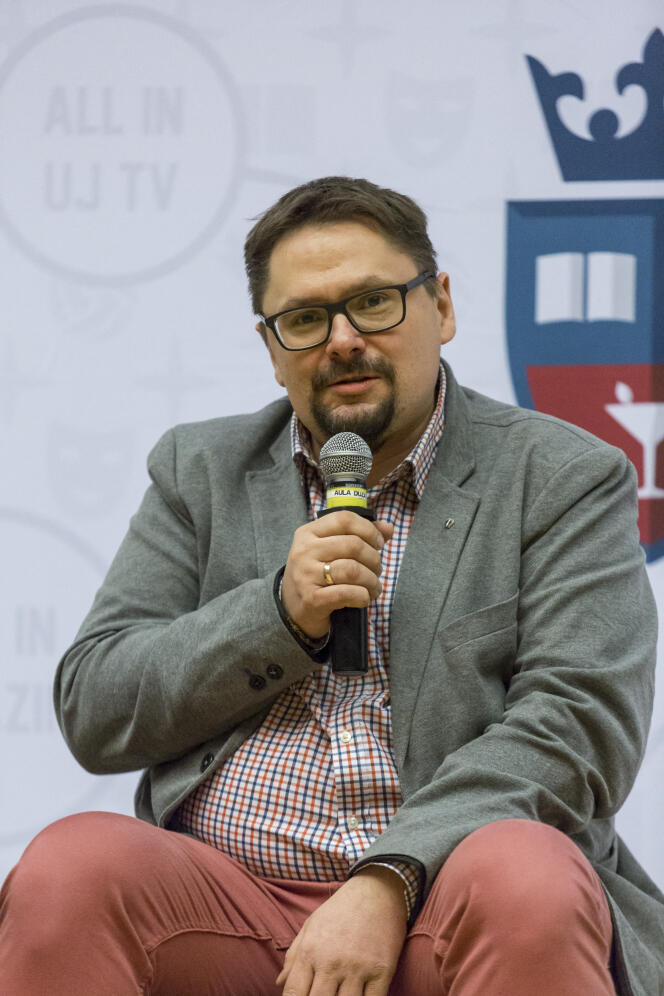LETTER FROM WARSAW
Some remind him of his nickname of “Catho-Taliban” or “Ayatollah of the Bible”, others now designate him as “the traitor” or the “sold out to the leftist liberals”. Journalist Tomasz Terlikowski, 49, a trained philosopher, had the gift – or a certain courage – to make enemies on both sides of the solid barricade that separates conservative, Catholic Poland from its liberal, secular half. Leader of ultra-Catholic polemicists a few years ago, his career has led him to a turnaround as spectacular as it is atypical. If his religious convictions have not, he says, “not changed”this is not the case with his view of the institution of the Church, of which he has become one of the sharpest and most listened to critics in Poland.
Tomasz Terlikowski, however, has come a long way. From 2009 to 2015, he was the director of the ultra-Catholic publishing house Fronda, then editor-in-chief of its information portal. From 2014 to 2017, he headed the editorial staff of TV Republika, a channel close to the most radical nationalist circles of Polish public debate. His style at the time contrasts sharply with the erudition he displays in his recent works: he handles verbal violence and hate speech with little restraint. In 2013, when Nelson Mandela died, he wrote that he was a “simple communist”, “just as racist towards whites” and that, by promulgating a law liberalizing abortion, he made himself responsible “of the deaths of many more black children than the worst South African racists”.
“I very much regret what I was able to say and write at that time. I am ashamed of the language I used, he confides today to World. I assumed that to break through the din of public debate, you had to hit hard. Since then, I have understood that these kinds of strong opinions can hurt deeply, and that they are intolerable from a Christian point of view. » This repentance particularly concerns the comments he may have made about the homosexual and trans community: “I have publicly apologized on multiple occasions and will continue to do so as necessary. »
“Deep empathy”
If he was one of the first in Poland to take an interest in the question of child crime within the Catholic Church, around fifteen years ago, it is from 2020 that he began a real crusade on the issue. Charged by the Dominicans with leading a commission of inquiry into a large-scale scandal within this religious order, he is overwhelmed by this experience, which will be the starting point of his evolution. “My relationship with the institution has profoundly changed. Investigation after investigation, I became aware of the extent of the phenomenon, that it was not, as I thought before, about isolated individuals, but that the institution could in itself be the framework of a systemic evil. »
You have 50% of this article left to read. The rest is reserved for subscribers.
